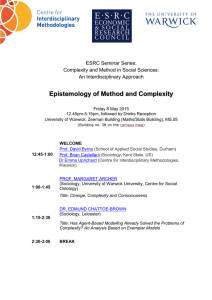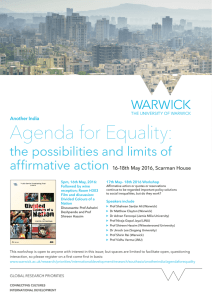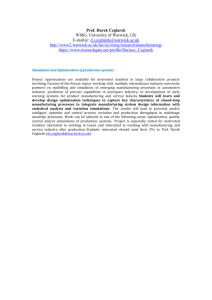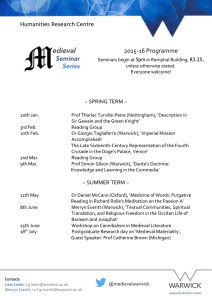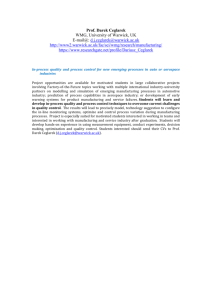Conference Report
advertisement
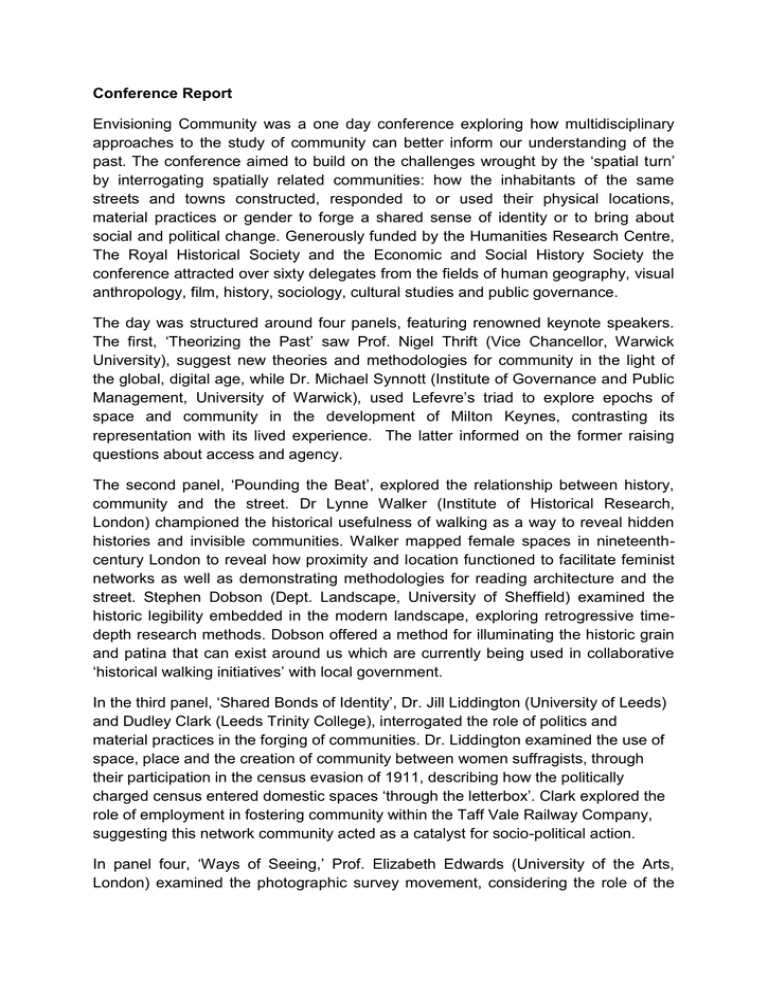
Conference Report Envisioning Community was a one day conference exploring how multidisciplinary approaches to the study of community can better inform our understanding of the past. The conference aimed to build on the challenges wrought by the ‘spatial turn’ by interrogating spatially related communities: how the inhabitants of the same streets and towns constructed, responded to or used their physical locations, material practices or gender to forge a shared sense of identity or to bring about social and political change. Generously funded by the Humanities Research Centre, The Royal Historical Society and the Economic and Social History Society the conference attracted over sixty delegates from the fields of human geography, visual anthropology, film, history, sociology, cultural studies and public governance. The day was structured around four panels, featuring renowned keynote speakers. The first, ‘Theorizing the Past’ saw Prof. Nigel Thrift (Vice Chancellor, Warwick University), suggest new theories and methodologies for community in the light of the global, digital age, while Dr. Michael Synnott (Institute of Governance and Public Management, University of Warwick), used Lefevre’s triad to explore epochs of space and community in the development of Milton Keynes, contrasting its representation with its lived experience. The latter informed on the former raising questions about access and agency. The second panel, ‘Pounding the Beat’, explored the relationship between history, community and the street. Dr Lynne Walker (Institute of Historical Research, London) championed the historical usefulness of walking as a way to reveal hidden histories and invisible communities. Walker mapped female spaces in nineteenthcentury London to reveal how proximity and location functioned to facilitate feminist networks as well as demonstrating methodologies for reading architecture and the street. Stephen Dobson (Dept. Landscape, University of Sheffield) examined the historic legibility embedded in the modern landscape, exploring retrogressive timedepth research methods. Dobson offered a method for illuminating the historic grain and patina that can exist around us which are currently being used in collaborative ‘historical walking initiatives’ with local government. In the third panel, ‘Shared Bonds of Identity’, Dr. Jill Liddington (University of Leeds) and Dudley Clark (Leeds Trinity College), interrogated the role of politics and material practices in the forging of communities. Dr. Liddington examined the use of space, place and the creation of community between women suffragists, through their participation in the census evasion of 1911, describing how the politically charged census entered domestic spaces ‘through the letterbox’. Clark explored the role of employment in fostering community within the Taff Vale Railway Company, suggesting this network community acted as a catalyst for socio-political action. In panel four, ‘Ways of Seeing,’ Prof. Elizabeth Edwards (University of the Arts, London) examined the photographic survey movement, considering the role of the photographers ‘gaze’ in the construction and creation of located community. Here Edwards offered methodological advice suggesting the need to explore the seriality of sets of photographs to understand the common patterns, methods and technologies at work in their production. Dr. Claire Westall (Dept. English and Comparative Literary Studies, University of Warwick) deconstructed Shane Meadows film, ‘This is England’, demonstrating the interplay between discourses of masculinity, community and national identity. A plenary session was initiated by Prof. Gillian Rose’s paper on the paradoxes of community. Bringing the debate into the twentieth and twenty-first centuries, Prof. Rose explored the ways that spaces continually intersect the boundaries of community and examined ways to unpick the conflation of the geographically spatial with the photographically visible. A general discussion ensued with several key themes emerging as well as demands for continued debate. Consequently the conference organizers are planning to set up a post conference website/forum to further facilitate the exchange of ideas between disciplines on the study of community. The publication of select papers from the event is also under discussion.
